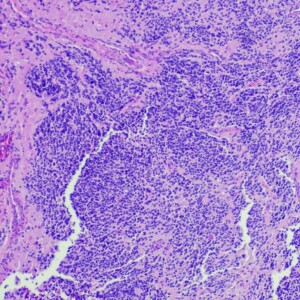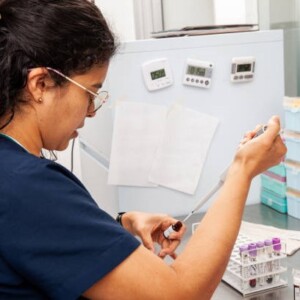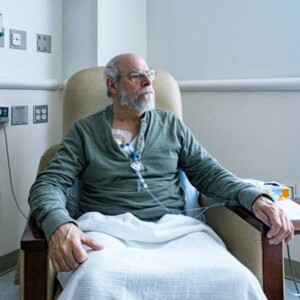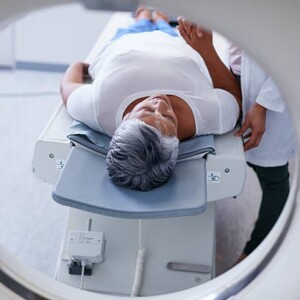

Member of the Board of the Medical Faculty of Kocaeli University.
Membership in associations:
Dr. Demir works at Memorial Ankara Clinic. He specializes in the treatment of neuroblastoma and other pediatric oncology. He performs bone marrow transplantation. Medical experience is more than 20 years.
Member of international societies:














Check the cost of treatment and get 20 000 € from international foundation
Get financial help up to 20 000 € for your child treatment
Medical consultant
Turkish oncologist will provide an individual chemotherapy program.
Israeli oncologist will provide an individual chemotherapy program.
Spanish oncologist will provide an individual chemotherapy program.
German oncologist will prepare an individual chemotherapy program.
Polish oncologist will prepare an individual chemotherapy program.
Italian oncologist will prepare an individual chemotherapy program.
Turkish radiologist will prepare a personalized radiation therapy program
Israeli radiologist will draw up an individual radiation therapy program.
German radiologist will draw up an individual radiation therapy program.
Spanish radiologist will draw up an individual radiation therapy program.
Polish radiologist will prepare an individual radiation therapy program.
Italian radiologist will draw up an individual radiation therapy program.
Turkish plastic surgeon will make an individual operation program.
German plastic surgeon will make an individual operation program.
Israeli plastic surgeon will make an individual operation program.
Italian plastic surgeon will make an individual operation program.
Polish plastic surgeon will make an individual operation program.
Spanish plastic surgeon will make an individual operation program.
Turkish orthopedic surgeon will make an individual operation program.
Israeli orthopedic surgeon will make an individual operation program.
German orthopedic surgeon will make an individual operation program.
Italian orthopedic surgeon will make an individual operation program.
Lithuanian orthopedic surgeon will make an individual operation program.
Polish orthopedic surgeon will make an individual operation program.
Ukrainian orthopedic surgeon will make an individual operation program.
Spanish orthopedic surgeon will make an individual operation program.
Turkish neurosurgeon will study the medical situation and give recommendations for treatment.
Israeli neurosurgeon will study the medical situation and give recommendations for treatment.
German neurosurgeon will study the medical situation and give recommendations for treatment.
Italian neurosurgeon will study the medical situation and give recommendations for treatment.
Lithuanian neurosurgeon will study the medical situation and give recommendations for treatment.
Spanish neurosurgeon will study the medical situation and give recommendations for treatment.
Ukrainian neurosurgeon will study the medical situation and give recommendations for treatment.
Turksih doctor will answer your questions
Israeli doctor will answer your questions
German doctor will answer your questions
Italian doctor will answer your questions
Polish doctor will answer your questions
Ukrainian doctor will answer your questions
Spanish doctor will answer your questions
Israeli orthopedic surgeon prepare an individual surgical plan and recomendations
Turkish orthopedic surgeon prepare an individual surgical plan and recomendations
German orthopedic surgeon prepare an individual surgical plan and recomendations
Italian orthopedic surgeon prepare an individual surgical plan and recomendations
Lithuanian orthopedic surgeon prepare an individual surgical plan and recomendations
Polish orthopedic surgeon prepare an individual surgical plan and recomendations
Spanish orthopedic surgeon prepare an individual surgical plan and recomendations
Lithuanian doctor will answer your questions
After examining your situation, doctor will make an individual price offer.
Doctor-consultant will answer all your questions about the cost of treatment, the choice of a doctor and fully organize treatment abroad.

we will contact you within 15 minutes
 Neuroblastoma is a malignant tumor (oncology) that forms from nervous tissue. The tumor is mostly found in the adrenal glands, along the spine, in the head, neck, chest, abdomen and pelvis along the cervical, thoracic and abdominal sympathetic trunk and in the paraganglia.
Neuroblastoma is a malignant tumor (oncology) that forms from nervous tissue. The tumor is mostly found in the adrenal glands, along the spine, in the head, neck, chest, abdomen and pelvis along the cervical, thoracic and abdominal sympathetic trunk and in the paraganglia.
In about 70% of cases, the tumor is located outside the abdominal cavity in the retroperitoneal space and in about 20% of cases it is localized between the lungs in the mediastinum.
Symptoms of neuroblastoma are determined by the location of the primary tumor, the presence of metastases and their size. In the case of localization of tumors in the sympathetic trunk, neurological symptoms are noted up to impaired sensation in the limbs due to the growth of the tumor into the spinal canal.
The treatment of neuroblastoma is very difficult, but oncologists in Turkey are able to effectively fight tumors of this type.
Neuroblastoma in the chest provokes cough and shortness of breath. Tumors in the neck area lead to the Horner’s triad: sagging eyelid, decreased pupillary diameter, and the eyeball falling inside the orbit. Regardless of the location and size of the tumor, fever, high blood pressure, or sweating may occur, but these symptoms are well treated.
Medical science does not know the exact causes of the tumor. Some experts believe that this oncology is most often associated with a gene defect. Most often, neuroblastoma is diagnosed in perinatal and childhood, which may indicate intrauterine processes of tumor development.
Leading doctors in Turkish clinics believe that there is no way to prevent this type of cancer. Therefore, oncologists recommend periodic examinations and contacting doctors in case of any abnormalities that may occur in a child or infant in order to start treatment in time. In the early stages, a small malignant tumor is much easier to treat.
 The outcome of neuroblastoma treatment depends on the age at which the disease was diagnosed. If it is under 3 years old, the prognosis is more favorable. The presence and localization of metastases and the size of the tumor play a key role.
The outcome of neuroblastoma treatment depends on the age at which the disease was diagnosed. If it is under 3 years old, the prognosis is more favorable. The presence and localization of metastases and the size of the tumor play a key role.
There are also genetic mutations that indicate an unfavorable prognosis for the development of neuroblastoma:
According to the American Cancer Society, the overall survival rate for people with neuroblastoma is 99% at stage 1 and 93% for patients with stage 2. In high-risk cases (stages 4 and 3 with unfavorable histology), the survival rate is 40-50%.
The success of treatment directly depends on the timely initiation of therapy, as well as on the level of qualification of the team of doctors: oncologist, surgeon, radiation therapist. The quality of the medications taken by the patient during treatment plays an important role. This is related to side effects and the effectiveness of the therapy in the end. Oncology can occur in each patient in different ways, so an individual approach to choosing a treatment protocol is important.
 For the initial diagnosis of the tumor and detection of metastases, doctors will perform an MRI or CT scan on the patient. Also, to establish an accurate diagnosis, a tumor biopsy is required to make sure that it is cancer. Based on the results of the diagnosis, the doctor will consult and prescribe a treatment plan.
For the initial diagnosis of the tumor and detection of metastases, doctors will perform an MRI or CT scan on the patient. Also, to establish an accurate diagnosis, a tumor biopsy is required to make sure that it is cancer. Based on the results of the diagnosis, the doctor will consult and prescribe a treatment plan.
Clinics in Turkey are equipped with the latest generations of devices for diagnosing patients with neuroblastoma. This allows specialists to detect even small metastases up to 2 mm.
Thanks to an accurate scan of the patient’s body, the oncologist will know the location and size of the tumor. In Turkey, an innovative method of diagnosing and treating neuroblastoma is also used – scintigraphy with MIBG (meta-iodobenzylguanidine).
Scintigraphy is a method of visualizing organs and tissues using radiopharmaceuticals – substances with radioactive isotopes that can accumulate in certain tissues of the body. After the radiopharmaceutical is injected into the bloodstream, the entire body is scanned using a gamma tomograph, which “highlights” areas with a radioisotope.
MIBG is used with an radioactive iodine contrast solution. Neuroblastoma cells “love” MIBG and actively take it up when administered intravenously. During a whole-body gamma tomography, clusters of malignant cells with MIBG (tumor and metastases) are visualized. This helps to determine as accurately as possible how the neuroblastoma has spread in the body.
Scintigraphy with MIBG also allows you to monitor the result of treatment and change drugs in a timely manner. In addition, radioactive iodine, getting into neuroblastoma cells, irradiates them from the inside. In this way, it also has a therapeutic effect.
In Eastern Europe and Central Asia, MIBG scintigraphy is available only in a few medical centers in some capital cities. Therefore, the prognosis of patients with neuroblastoma during treatment in Turkey, where the most modern technologies are available, is significantly improved. Especially with a metastatic stage or tumor recurrence.
 Neuroblastoma can be cured. The success of therapy depends on a number of factors related to the following parameters:
Neuroblastoma can be cured. The success of therapy depends on a number of factors related to the following parameters:
In rare cases, the tumor regresses on its own or transforms into a benign tumor. In this case, there is no need to use an aggressive treatment method. In other situations, depending on the stage, it may be necessary to remove the tumor, chemotherapy and/or radiation therapy, autologous bone marrow transplantation (especially in cases of metastases).
In the later stages of the disease, the patient is prescribed high-dose chemotherapy, which significately destroys cancer cells in the body. But these drugs also affect the condition of the bone marrow. Therefore, doctors collect the necessary amount of bone marrow for transplantation from the patient in advance for reintroduction into the body after chemotherapy. This procedure is called autologous bone marrow transplantation. This type of treatment is included in the neuroblastoma treatment protocol, but it is associated with great risks. It is used only in aggressive forms of cancer or in advanced stages with the presence of metastatic processes. This method requires the patient to be in remission.
Clinics in Turkey use the following drug treatment regimens:
 Oncology departments of Turkish medical centers are focused on high patient survival rates. The main advantages of treating malignant tumors in Turkey include:
Oncology departments of Turkish medical centers are focused on high patient survival rates. The main advantages of treating malignant tumors in Turkey include:
 There are only a few clinics in Turkey that specialize in the diagnosis and treatment of neuroblastoma. These hospitals have all the necessary equipment for reliable diagnosis and rehabilitation after the main treatment.
There are only a few clinics in Turkey that specialize in the diagnosis and treatment of neuroblastoma. These hospitals have all the necessary equipment for reliable diagnosis and rehabilitation after the main treatment.
One of these centers is the Memorial Clinic. The network of medical centers operates in Antalya, Istanbul and Ankara. An approximate treatment plan with a price is usually drawn up for a year. The cost most often includes diagnostics, chemotherapy, radiation therapy, surgery and bone marrow transplantation (depending on the individual patient’s indications). In the course of treatment, the plan and cost can be adjusted, but more often it happens downward, since clinics usually calculate the price taking into account unforeseen situations.
In order to come to Turkey for diagnostics and treatment, the amount of €15,000 is usually enough, and the further cost of treatment is covered gradually at the expense of funds and patient fees.
We also assist in paying part of the cost of treatment for patients in the amount of €10000 through international funds.
For example, the price of surgery can be $8000, the cost of a 30-session radiation therapy course is about $9000, and the cost of a professor’s consultation is from $160.
 An oncological disease such as neuroblastoma significantly reduces the overall physical capabilities of the body, so the patient should start with a gentle physical activity, which gradually increases.
An oncological disease such as neuroblastoma significantly reduces the overall physical capabilities of the body, so the patient should start with a gentle physical activity, which gradually increases.
After entering remission, the patient needs MRI or CT examinations every 3 months for the next 2 years, then control is carried out every six months. This is required in order to make sure that the cancer hasn’t returned.
In order to reduce the cost of treatment, patients can perform these examinations in their home country and send the images for an absentee consultation to a Turkish doctor. It is important to take into account the quality of the images and the technical capabilities of the device to detect the smallest metastases.
Rehabilitation in a Turkish hospital will be aimed at restoring the patient’s vitality, which was lost due to long and difficult treatment.